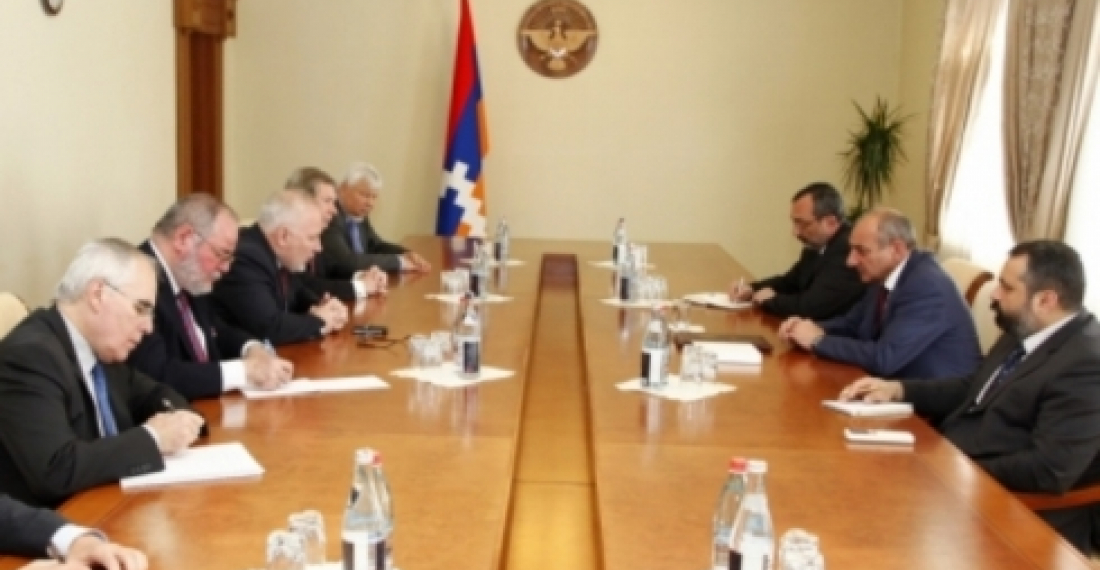Diplomats from the OSCE "Minsk Group" who are currently in the South Caucasus on Sunday discussed the Nagorno-Karabakh conflict with the leadership of the Karabakh Armenians in Stepanakert.
Speaking to the diplomats, the President of the self-declared Nagorno-Karabakh Republic (NKR), Bako Sahakyan "stressed that freedom and independence are exceptional values for Artsakh and return to the past both in terms of status and borders is impossible." The website of the NKR President said that Sahakyan at the beginning of the meeting congratulated the newly appointed French co-chairman Pierre Andrieu. Bako Sahakyan expressed gratitude to the former French co-chairman Jacques Faure for impartial and efficient work.
According to the website President Sahakyan underlined that official Stepanakert was committed to the peaceful settlement of the conflict within the framework of the Minsk Group.
During the meeting the current situation on the line of contact and regional developments were also discussed.
NKR Foreign Minister Karen Mirzoyan and other officials took part in the meeting.
The three co-chair of the OSCE "Minsk Group" represent France, Russia and the United States. They were accompanied by the Personal Representative of the Swiss Chairmanship of the OSCE.
source: commonspace.eu with agencies.
photo: NKR President Bako Sahakyan meeting representatives of the OSCE "Minsk Process" in Stepanakert on 18 May 2014. Picture courtesy of the Press Service of the President of NKR.







